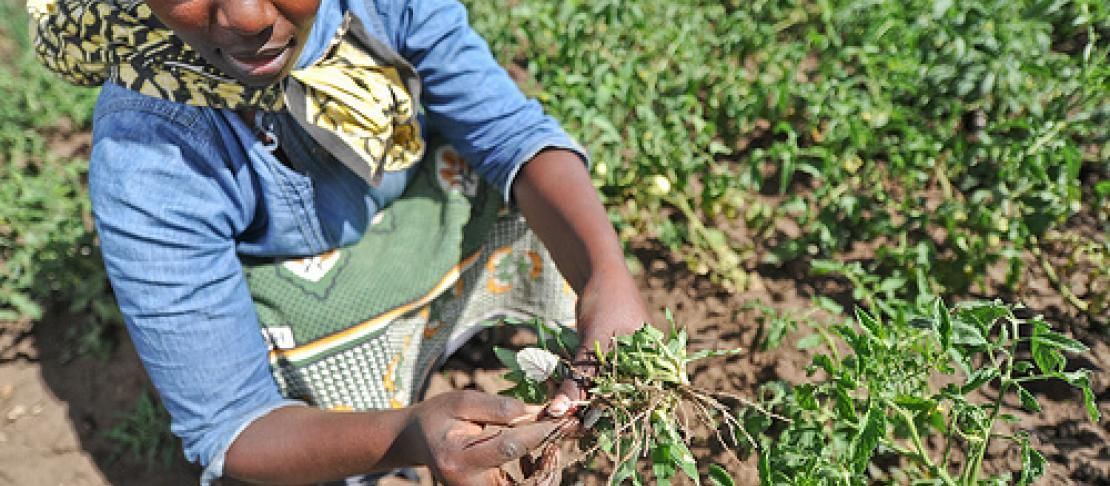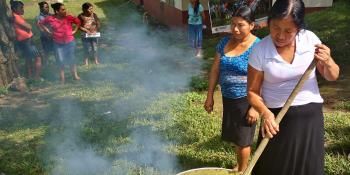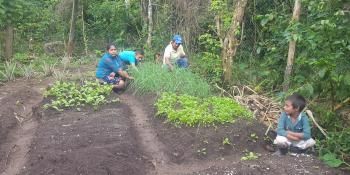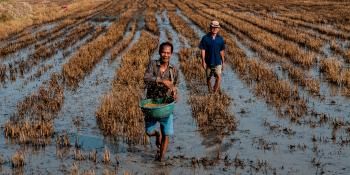No excuses, no regrets: we can adapt agriculture to climate change now

by Vanessa Meadu
Imagine you're working for your country's government and you've been given the formidable task of developing a strategy to help the agriculture sector adapt to climate change. Working out how climate models will play out on the ground for farmers, and conceiving options for farmers to adapt is sophisticated stuff, and the challenge is only compounded when the best information remains somewhat uncertain.
You might easily be discouraged, when faced with data and projections that are not sufficiently specific, only applicable for certain crops, or simply missing altogether. Often this uncertainty becomes a political weapon, wielded as an excuse for inaction. But a new analysis published in the journal PNAS debunks such excuses by showing how scientists and governments can cut through uncertainty and make the most of existing knowledge, however conflicting or weak. In fact some countries have done exactly that, and "embraced “no-regrets” adaptation: actions that will benefit farmers and society regardless of specifically how and when climate change plays out on the ground."
The paper Addressing uncertainty in adaptation planning for agriculture is co-authored by researchers from the CGIAR Research Program on Climate Change, Agriculture and Food Security (CCAFS), the International Water Management Institute (IWMI), the International Center for Tropical Agriculture (CIAT), the International Livestock Research Institute, and leading universities (Oxford, Leeds, Reading). The researchers point to examples around the world where governments have taken crucial first steps to safeguard food and farming, even when information was weak.
In Nicaragua, scientists have managed to predict a "narrow niche" where Arabica coffee production will still be viable as temperatures rise, which allows farmers to prepare to relocate to cooler areas, or else switch to similarly profitable crops.
In Sri Lanka, faced with conflicting projections about future rainfall, the government focused on regions that have historically been more vulnerable to water problems. Their approach was to invest in tried and tested methods for farmers to collect and use rainwater, which would benefit farmers in the short and long term.
But the crucial ingredient is political will:
“Getting farmers, communities, governments, donors and other stakeholders to embrace various adaptation strategies can end up being equally or more important than seeking higher levels of scientific certainty from a climate model,” said Andy Challinor, a professor at the Institute for Climate and Atmosphere Science, School of Earth and Environment at the University of Leeds, who co-leads research on climate adaptation at CCAFS and was also an author of the study.
“Science is now reaching a point where it will be able to provide advice on when—not just whether—major climatic shifts relevant to agriculture will happen," said Sonja Vermeulen, head of research at CCAFS and the lead author of the study. "Helping governments and farmers plan ahead will make all the difference in avoiding the food insecurity and suffering that climate change threatens.”
Read more
Addressing uncertainty in adaptation planning for agriculture by Sonja J. Vermeulen, Andrew J. Challinor, Philip K. Thornton, Bruce M. Campbell, Nishadi Eriyagama, Joost M. Vervoort, James Kinyangi, Andy Jarvis, Peter Läderach, Julian Ramirez-Villegas, Kathryn J. Nicklin, Ed Hawkins, and Daniel R. Smith. 2013. PNAS vol. 110 no. 21. doi:10.1073/pnas.1219441110.
Press Release: New Report Identifies "Regret-Free" Approaches for Adapting Agriculture to Climate Change
Op Ed: How farmers can adapt to a warming world by Sonja Vermeulen and Andy Challinor. Aljazeera, 6 June 2013
Adaptation case studies:
Mesoamerican Coffee: Building a Climate Change Adaptation Strategy CIAT Policy Brief, 2012
In Sri Lanka, research translates into action on climate adaptation EIARD Policy Brief, Feb 2013
Shared action on food and environments in East Africa CCAFS and Oxford Environmental Change Institute Policy Brief, April 2013
Vanessa Meadu is Communications and Knowledge Manager for the CGIAR Research Program on Climate Change, Agriculture and Food Security. For more updates follow CCAFS on twitter @cgiarclimate and on facebook.


